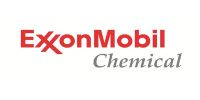ExxonMobil Chemical is one of the largest petrochemical companies worldwide. It has a manufacturing capacity in every major region of the world, serving large and growing markets. Their mission is to provide quality petrochemical products and services in the most efficient and responsible manner to generate outstanding customer and shareholder value while remaining committed to the principles of sustainability.
Buzzword
Quality: critical in all we do.
Instamine invites you to learn more about ExxonMobil Chemical
ExxonMobil, an American multinational oil and gas corporation, presently based out of Texas, has had one of the longest histories of any company in its industry. A direct descendant of John D. Rockefeller's Standard Oil, the company traces its roots as far back as 1886 to the founding of the Vacuum Oil Company, which would become part of ExxonMobil through its own merger with Mobil during the 1930s.
In 1998, Exxon and Mobil signed a US$73.7 billion merger agreement forming a new company called Exxon Mobil Corp. (ExxonMobil), the largest oil company and the third-largest company in the world. The merger was approved in the European Union by the European Commission on September 29, 1999, and by the United States Federal Trade Commission on November 30, 1999. Today, the company, which merged from Exxon and Mobil in 1999, is the largest investor-owned oil and gas company in the world by revenue and market capitalization.
ExxonMobil Chemical is a petrochemical company that was created by merging Exxon's and Mobil's chemical industries. Its principal products include basic olefins and aromatics, ethylene glycol, polyethylene, and polypropylene along with speciality lines such as elastomers, plasticizers, solvents, process fluids, oxo alcohols and adhesive resins. The company also produces synthetic lubricant base stocks as well as lubricant additives, propylene packaging films and catalysts.
The Product Solutions Company will engineer, manufacture and deliver the products needed by modern society at an industry-leading scale, serving multiple segments, products and markets. It will play a critical role in reducing greenhouse gas emissions and plastic waste by developing more sustainable products such as lower-emission fuels, chemical performance products and next-generation lubricants and plastics.
Exxonmobil Business Sectors
Upstream division
The upstream division makes up the majority of ExxonMobil's revenue, accounting for approximately 70% of it. Across the upstream, geologists, engineers and scientists work tirelessly to explore and develop oil and natural gas using innovation and industry-leading technology. In 2021, ExxonMobil had about 30 billion barrels of oil and oil equivalents, as well as 38.1 billion cubic feet of natural gas.
In the United States, ExxonMobil's petroleum exploration and production activities are concentrated in the Permian Basin, Bakken Formation, Woodford Shale, Caney Shale, and the Gulf of Mexico. In Argentina, ExxonMobil holds 0.9 million acres, in Germany 4.9 million acres, in the Netherlands ExxonMobil owns 1.5 million acres, in Norway owns 0.4 million acres offshore, and in the United Kingdom 0.6 million acres offshore. In Africa, upstream operations are concentrated in Angola where it owns 0.4 million acres offshore, Chad where it owns 46,000 acres, Equatorial Guinea where it owns 0.1 million acres offshore, and Nigeria where it owns 0.8 million acres offshore.
Until the 2022 Russian invasion of Ukraine, ExxonMobil held 85,000 acres in the Sakhalin-I project through its subsidiary Exxon Neftegas. Together with Rosneft, it has developed 63.6 million acres in Russia, including the East-Prinovozemelsky field. In Australia, ExxonMobil held 1.7 million acres, including 1.6 million acres offshore.
After Russia's 2022 invasion began, though, ExxonMobil announced it was fully pulling out of both Russia and Sakhalin-I, and launched a lawsuit against Russia's federal government on August 30.
Product Solutions Division
ExxonMobil markets products around the world under the brands Exxon, Mobil, and Esso. Mobil is ExxonMobil's primary retail gasoline brand in California, Florida, New York, New England, the Great Lakes, and the Midwest. Exxon is the primary brand in the rest of the United States, with the highest concentration of retail outlets located in New Jersey, Pennsylvania, Texas (shared with Mobil), and in the Mid-Atlantic and Southeastern states. ExxonMobil has stations in 46 states, just behind Shell USA and ahead of Phillips 66, lacking a presence only in Alaska, Hawaii, Iowa, and Kansas.
ExxonMobil's primary retail brands worldwide are Exxon, Esso, and Mobil, with the former being used exclusively in the United States and the latter two being used in most other countries where ExxonMobil operates. Esso is the only one of its brands not used widely in the United States. Outside of the United States, Esso and Mobil are primarily used, with Esso operating in 14 countries and Mobil operating in 29 countries and regions. In Japan, ExxonMobil had a 22% stake in TonenGeneral Sekiyu K.K., a refining company which merged with Eneos in 2017
ExxonMobil Chemical is a petrochemical company that was created by merging Exxon's and Mobil's chemical industries. Its principal products include basic olefins and aromatics, ethylene glycol, polyethylene, and polypropylene along with speciality lines such as elastomers, plasticizers, solvents, process fluids, oxo alcohols and adhesive resins.
Low Carbon Division
Officially formed with ExxonMobil's 2022 corporate restructuring, and currently led by former General Motors president Dan Ammann, Low Carbon Solutions is the company's alternative energy division. The division intends to lower emissions in hard-to-decarbonize sectors such as heavy industry, commercial transportation, and power generation using a combination of lower-emission fuels, hydrogen, and carbon capture and storage. Low Carbon Solutions conducts research on clean energy technologies, including algae biofuels, biodiesel made from agricultural waste, carbonate fuel cells, and refining crude oil into plastic by using a membrane and osmosis instead of heat.
ExxonMobil publicly announced it would be investing $15 billion in what it deemed a "lower carbon future", and claims to be the world leader in carbon capture and storage. The company additionally plans that its Scope 1 and Scope 2 emissions will be carbon neutral by 2050. ExxonMobil additionally acquired biofuel company Biojet AS in 2022, and its Canadian subsidiary Imperial Oil is moving ahead with plans to produce a renewable diesel biofuel.
Watch the Video
Reducing Carbon Emis...
ExxonMobil is committed to reducing emissions. With our innovative energy solutions and our transformative research, we are creating a world where everyone has access to clean, reliable energy.
Learn moreReducing Carbon Emissions With Innovative Energy Solutions
ExxonMobil is committed to reducing emissions. With our innovative energy solutions and our transformative research, we are creating a world where everyone has access to clean, reliable energy.
- 206 products
- 0 Brands
See ExxonMobil Chemical’s featured brands
Documents
Learn more about ExxonMobil Chemical products and browse available documents.
Browse Documents
Address
ExxonMobil Product Solutions 22777 Springwoods Village Parkway Spring, Texas 77389-1425 USA




